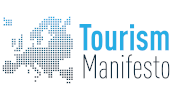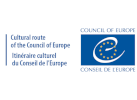Is a certified tourist guide for Greece, a FEG & WFTGA tourist guide trainer and elected as the FEG ExCo president
FEG Welcomes the voted Digital Services Act.... .. ... ... ...
This month, the European Parliament endorsed the Agreement on the two texts of the Digital Service Package: the Digital Services Act (DSA) and the Digital Markets Act (DMA). It marks a historic moment in digital regulation with the landslide vote by the European Parliament. This is the first jurisdiction in the world to set a comprehensive standard for regulating the digital space, which must be respected in the same way everywhere, including services such as internet service providers, cloud services, messaging, marketplaces, or social networks.
FEG was very supportive of the DSA initiative from the very start and applauds this new legislation. Co-legislators have adopted the remedies to reign the so-far worldwide uncontrolled online platform gatekeepers’ power. Under the new rules, intermediary services, namely online platforms – such as social media and marketplaces – will have to take measures to protect their users from illegal content, goods and services. Among other services, we hope it will largely facilitate the removal of illegal offers of services such as illegal tourist guiding services and guided tours offered on the web.
Platforms will be supervised at the European level in cooperation with the Member States. Online marketplaces will need to identify their business users and clarify who is selling a product or offering a service.

What constitutes illegal content is defined in other laws either at EU level or at national level. Where content is illegal only in a given Member State, as a general rule it should only be removed in the territory where it is illegal. It is a horizontal legal framework that has been the cornerstone for regulating digital services in the European single market.
The DMA and the DSA will have to be formally adopted by the EU Council in July and September respectively. After that, both pieces of legislation will be published in the Official Journal of the EU. It will enter into force 20 days later, or from 1 January 2024, whichever is later ater entry into force. It will be directly applicable in all Member States six months thereafter.
According to the EU Internal Market Commissioner, Thierry Breton’s latest blog, introducing new obligations on platforms and rights for users would be pointless if these are not properly enforced. Each platform, big and small, whether established within the EU or not, will have to appoint a legal representative in Europe. And each Member State will have a regulator – a competent authority - with the necessary powers to enforce the rules. Dedicated teams within DG CONNECT will be organised around thematic domains – including the societal aspects, the technical aspects, and the economic aspects.

The MEP Christel Schaldemose (S&D, DK), rapporteur for the Digital Services Act said: “For too long tech giants have benefited from an absence of rules. The digital world has developed into a Wild West, with the biggest and strongest setting the rules. But there is a new sheriff in town - the DSA. We will enhance consumer protection, give users better rights and regulate the core of the platforms’ business model. All in all, what is illegal offline will also be illegal online.”
We expect - as qualified and legally registered tourist guides within our own European destinations - from the European Commission to ensure that the industry is effectively contributing to the REAL economy, its workers and businesses, by protecting the consumers and supporting the rebirth of European tourism in the post-Covid pandemic era. There is still much work to do with policy makers to bring back pre-Covid levels of activity in tourism jobs. We count on the Commission to take all the necessary steps to enforce this crucial piece of legislation for all the tourism sectors.










